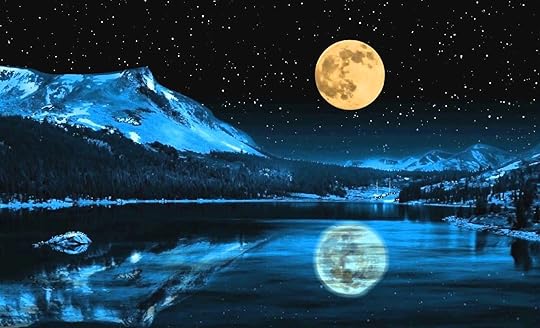Why Magical Realism and I Don’t Get Along
[image error]
This is a topic that I’ve been thinking about a lot lately. Recently, I tried reading magical realism for the first time (I started with the acclaimed The Weight of Feathers by Anna Marie McLemore), and my attempts have generally fallen quite flat.
Maybe it’s because of the way my brain is organized, but I tend to take in information very methodically and concretely. I don’t do well with abstract concepts. I understand metaphors and symbolism, as they’re referring to or representing something that is tangible. But I get really hung up on parables or “tall tales” that either don’t seem to connect to anything relevant in the rest of the story, or are so overblown exaggerated that they just appear ridiculous.
Having been a fantasy reader since I was very young, I am fully aware that in speculative fiction, things are not always what they first seem, and that characters will often have to rely on a faith in the unknown or unproven to get through the plot. None of this bothers me.

What bothers me is when I honestly have no stinking idea what’s going on as I read.
Case in point: The Weight of Feathers. The premise indicates it’s kind of a modern Hispanic Romeo and Juliet, where one family is represented by birds and the other by snakes. Apparently they’re both circus performers. O-kay…I think. The first few chapters, I felt like I was following along. But by the middle of this book, I was utterly lost. Did the families actually transform into those animals or not?? Why were they feuding unless it was because they were natural enemies in their creature states?? To say I was frustrated and not invested by the time I finished is an understatement.
It’s precisely why A Monster Calls made me upset and angry. By the “big reveal” climatic scene in the last few pages, I still couldn’t determine what the monster really was — a true walking tree, a manifestation of the narrator’s feelings about his mother’s illness, or a crazy dream? It meant that what should’ve been an emotionally charged book left me feeling robbed, because I simply could not wade through my confusion and anxiety over this confusion. I needed more than possible Freudian theories.
While I remained in a fog after these experiences, I mistakenly ordered Anna Marie McLemore’s Wild Beauty from the library. I say “mistakenly,” because I didn’t realize it was by the same author as The Weight of Feathers — I went by the cover alone. After getting about 25 pages in, I realized that I wouldn’t be able to finish Wild Beauty. Sure enough, I made it to about 70%, then threw in the towel. It was deja vu all over again — did the flowers actually sprout from the ladies’ bodies, or were they just excellent gardners? When it was said their lovers “disappeared,” did they in fact vanish into thin air, or (much more likely) they just left?
[image error]
So, despite bloggers raving about McLemore (and Patrick Ness), I won’t be trying any more of their works. I simply don’t have the patience for muddling through, vainly hoping to comprehend something that should be set forth in quantifiable terms.
Enter my latest bookdragon struggle: All the Crooked Saints by Maggie Stiefvater. This one still sticks in my craw. I like Maggie Stiefvater, I was excited she had a new book coming out, I even pre-ordered it. However, I actually had to read this twice in about as many weeks for the overall meaning to begin to penetrate.
I am a well-educated person. I have an IQ of 143, for crying out loud. I know a lot about various world religions and spiritual belief systems. So why did I keep getting knocked down by the theories and prose of All The Crooked Saints?
Between pages 10 and 100, I put this novel aside about 5 times. I literally felt that I knew what was going on, then the narration took me on a totally different path (not in a good way), and it was starting to grate on my nerves. I pushed through, and even after reading the epilogue the second time, I’m still a bit tangled in bookdragon yarn of sad puzzlement. Why were the Sorias not allowed to speak to the pilgrims (when doing so would’ve healed them a lot faster?) What was the “darkness” that the pilgrims and Sorias experienced? The result of sin? A curse brought about by their sin? Or are we talking purely symbolic inner darkness — guilt, low self-esteem, etc.? I’m sorry, folks, but I need cold, hard facts.

I also have to admit, a little selfishly, that I’m concerned about authors who were writing fantasy and now are tending more towards magical realism. This is an issue because I love the former but not the latter, and the latter is becoming increasingly more prevalent in bookstores and libraries. Am I about to start losing some of my favorite authors?
As a reader, not a publisher or editor, I’m aware I don’t have much say. And this bothers me, too — is traditional publishing the latest entertainment industry to fall prey to only releasing what’s trendy, instead of what their audience is asking for?
Hopefully 2018 will be the year of lots of cool new fantasy authors, determined to buck the trend. I’m over here, eagerly awaiting what non-allegorical myths, legends, and magical creatures you’re about to release on the world of fiction.

Daley Downing's Blog
- Daley Downing's profile
- 36 followers



